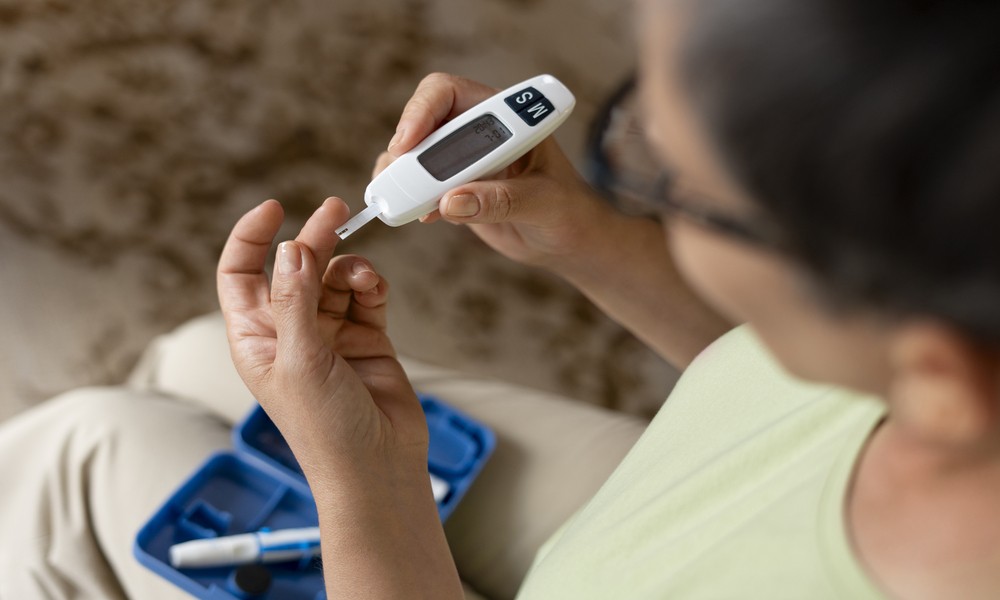Did you know that diabetes can affect more than just your blood sugar? It can also have a serious impact on your oral health—particularly your teeth and gums.
If you or someone you care about is living with diabetes, it’s important to understand how the condition can influence your mouth and what you can do to stay healthy.
In Canada, over 3.7 million people are living with diabetes, and many don’t realize the connection between diabetes and dental health. In this blog, we’ll break down how diabetes can affect your teeth in simple terms and share practical tips to help you protect your smile.
The Link Between Diabetes and Oral Health
Your mouth is closely linked to your overall health—and that includes how your body manages blood sugar.
When blood sugar levels are high, they can affect many parts of your body, including your teeth and gums. Diabetes weakens your immune system, making it harder to fight off infections—even in your mouth.
One of the most common oral health issues for people with diabetes is Gum Disease. It often starts with red, swollen, or bleeding gums and can lead to tooth loss if left untreated. People with diabetes are also more likely to experience cavities, dry mouth, and slower healing after dental treatments.
Common Dental Problems Caused by Diabetes
Let’s look at some of the most common ways diabetes can harm your teeth and mouth:
1. Gum Disease (Gingivitis and Periodontitis)
High blood sugar supports bacteria growth. These bacteria form plaque, a sticky layer on your teeth. If not removed, plaque causes inflammation in your gums. Over time, this can lead to serious gum infections.
In severe cases, it can damage the bone that holds teeth in place.
2. Dry Mouth
Diabetes can reduce the amount of saliva in your mouth, which leads to a dry, sticky mouth. Saliva is important because it helps wash away food particles and bacteria. Less saliva may lead to cavities and mouth sores.
3. Slow Healing After Dental Work
If you need dental surgery or even a simple extraction, diabetes may slow down your healing. This is because high blood sugar affects blood flow and your body’s ability to repair itself.
4. Increased Risk of Cavities
Less saliva and higher sugar levels mean more risk of tooth decay. Bacteria love sugar. When they feed on it, they produce acid that damages your teeth.
5. Oral Thrush (Fungal Infection)
People with diabetes may be more likely to get a fungal infection in the mouth called thrush. It looks like white patches and can be painful. Thrush happens more often when blood sugar is not well controlled.
How To Protect Your Teeth If You Have Diabetes?
The good news is—you can take steps to protect your teeth and gums. Here’s how:
- Keep your blood sugar under control. This is the most important step. Good diabetes management helps prevent oral issues before they start.
- Brush your teeth twice a day using a soft-bristled toothbrush and fluoride toothpaste.
- Floss daily to remove plaque from between your teeth and below the gum line.
- Visit your dentist regularly, at least twice a year, or more often if your dentist recommends it.
- Consider professional teeth cleaning at Dr. Beena George Dentistry in Mississauga to remove plaque and tartar that regular brushing or flossing might miss.
- Let your dentist know you have diabetes. They may take extra precautions to help keep your mouth healthy. At Dr. Beena George Dentistry, you can achieve personalized dental care, suitable to your overall health and desire.
- Limit Smoking for Better Oral Health. Smoking increases the risk of gum disease, especially in people with diabetes.
- Stay hydrated. Drinking water helps prevent dry mouth and keeps saliva flowing.
When Should You See A Dentist?
Even if your mouth feels fine, regular dental check-ups are essential. If you’re in the Mississauga area, consider visiting a dental clinic like Dr. Beena George Dentistry if you notice any of the following:
- Bleeding gums
- Loose teeth
- Persistent bad breath
- Mouth dryness
- White patches on the tongue or cheeks
Early treatment can stop minor problems from becoming serious.
Diabetes In Kids And Teens: What Parents Should Know
Diabetes can affect children’s dental health too. Kids with Type 1 diabetes may face the same issues adults do. Regular brushing, flossing, and dental visits are just as important for young people. Parents should also watch for signs of dry mouth, tooth sensitivity, or bad breath in their children.
Teaching good oral habits early helps set the foundation for healthy adult teeth.
Dental Care And Coverage In Canada
In Canada, access to dental care varies by province. Some provinces offer coverage for children and low-income families, but not all plans cover diabetic dental needs fully. If you have private or employer-provided insurance, review your plan to see what’s covered.
You can also ask your dentist’s office if they offer flexible payment plans or direct billing.
FAQs: Diabetes Effect On Dental Health
1. Can diabetes cause tooth decay?
Yes. High blood sugar, feeds bacteria that produce acid. This acid breaks down tooth enamel, leading to cavities.
2. How often should a diabetic person see a dentist?
At least twice a year. Some may need to go more often based on their dental and blood sugar condition.
3. What are diabetic-friendly oral care routines?
Brush and floss daily, use alcohol-free mouthwash, avoid sugary snacks, drink plenty of water, and see your dentist regularly.
4. What are the early signs of dental problems in diabetics?
- Bleeding gums
- Mouth dryness
- Bad breath
- Swollen gums
- Loose teeth
These are the early red flags of dental problems in diabetics.
5. Is it safe for diabetics to have dental surgery?
Yes, however, it is ideal to have your blood sugar well-managed before surgery. Tell your dentist about your condition so they can take proper care.
Final Thoughts
Diabetes doesn’t just affect your body—it affects your smile too. With regular care and good blood sugar control, you can keep your teeth strong and your gums healthy.
Whether you’re a teenager managing Type 1 diabetes, or a 40-year-old newly diagnosed with Type 2, oral health is an important part of your overall wellness. If you’re in Mississauga, Dr. Beena George Dentistry offers personalized care that considers your medical needs and goals.
Don’t wait till symptoms appear—book a dental check-up today and stay ahead. Call us at 905-542-9999.
Your smile is worth it!



